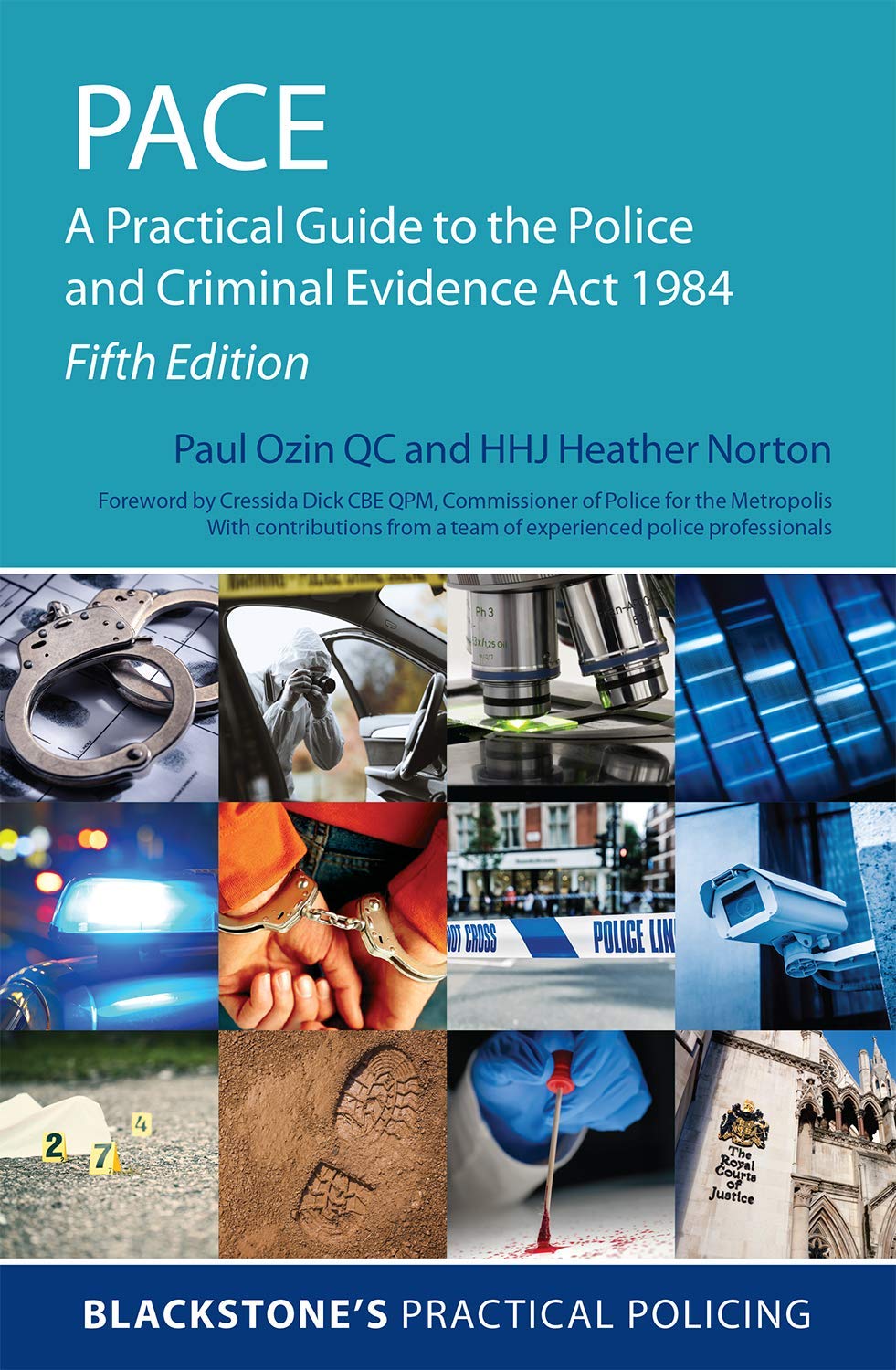About this deal
i) justice of the peace or a Circuit judge consists of or includes items subject to legal privilege; Paragraph 9.1 also applies to search records made by immigration officers. In these cases, a search register must also be maintained at an immigration office. (See also Note 2D.) 10 Searches under Schedule 5 to the Terrorism Prevention and Investigation Measures Act 2011. da) Where the application is under PACE section 8, or Schedule 1, paragraph 12 for a single warrant to enter and search:
On arrival at the police station or after being first arrested at the police station, the arrested person must be brought before the custody officer as soon as practicable and a custody record must be opened in accordance with section 2 of Code C. The information given by the arresting officer on the circumstances and reason or reasons for arrest shall be recorded as part of the custody record. Alternatively, a copy of the record made by the officer in accordance with paragraph 4.1 above shall be attached as part of the custody record. See paragraph 2.2 and Code C paragraphs 3.4 and 10.3.
Opening Options
that if they do not agree to attend voluntarily at a time which meets the needs of the investigation, or having so agreed, fail to attend, or having attended, fail to remain for the interview to be completed, their arrest will be necessary to enable them to be interviewed.
Terrorism Prevention and Investigation Measures Act 2011, Schedule 5, paragraph 8(2)(b) search of premises for compliance purposes (see paragraph 10.1). a) to enable the name of the person in question to be ascertained (in the case where the constable does not know, and cannot readily ascertain, the person’s name, or has reasonable grounds for doubting whether a name given by the person as his name is his real name): Children & Young Persons Act 1969, section 32(1A) (absconding) – arrest to return the person to the place where they are required to reside;
Subject to paragraph 7.2, an officer who is searching any person or premises under any statutory power or with the consent of the occupier may seize anything: This Code does not apply to the exercise of a statutory power to enter premises or to inspect goods, equipment or procedures if the exercise of that power is not dependent on the existence of grounds for suspecting that an offence may have been committed and the person exercising the power has no reasonable grounds for such suspicion.
The purpose of paragraph 2.9(b) is to protect those involved in serious organised crime investigations or arrests of particularly violent suspects when there is reliable information that those arrested or their associates may threaten or cause harm to the officers or anyone accompanying them during a search of premises. In cases of doubt, an officer of inspector rank or above should be consulted. Having determined that the necessity criteria have been met and having made the arrest, the officer can then consider the use of street bail on the basis of the effective and efficient progress of the investigation of the offence in question. It gives the officer discretion to compel the person to attend a police station at a date/time that best suits the overall needs of the particular investigation. Its use is not confined to dealing with child care issues or allowing officers to attend to more urgent operational duties and granting street bail does not retrospectively negate the need to arrest.
Changes to legislation:
vii) a list of any articles seized or the location of a list and, if not covered by a warrant, the grounds for their seizure; if any of the criteria do apply, whether to arrest, grant street bail after arrest, report for summons or for charging by post, issue a penalty notice or take any other action that is open to the officer. g) Terrorism Prevention and Investigation Measures Act 2011, Schedule 5, paragraphs 5(1), 6(2)(b) and 7(2), searches relating to TPIM notices (see paragraph 10.1). Reasonable and proportionate force may be used if necessary to enter premises if the officer in charge of the search is satisfied the premises are those specified in any warrant, or in exercise of the powers described in paragraphs 4.1 to 4.3, and if: The arrested person must be informed that they have been arrested, even if this fact is obvious, and of the relevant circumstances of the arrest in relation to both the above elements. The custody officer must be informed of these matters on arrival at the police station. See paragraphs 2.9, 3.3 and Note 3 and Code C paragraph 3.4. (a) ‘Involvement in the commission of an offence’
ii) summarising the extent of the powers of search and seizure conferred by PACE and other relevant legislation as appropriate; c) undertaken in pursuance of search warrants issued to and executed by constables in accordance with PACE, sections 15 and 16 (see Note 2A); new information coming to light after the arrangements were made indicates that from that time, voluntary attendance ceased to be a practicable alternative and the person’s arrest became necessary; anddb) Whether an application under PACE section 8 is for a warrant authorising entry and search on more than one occasion, and if so, the officer must state the grounds for this and whether the desired number of entries authorised is unlimited or a specified maximum;
 Great Deal
Great Deal 